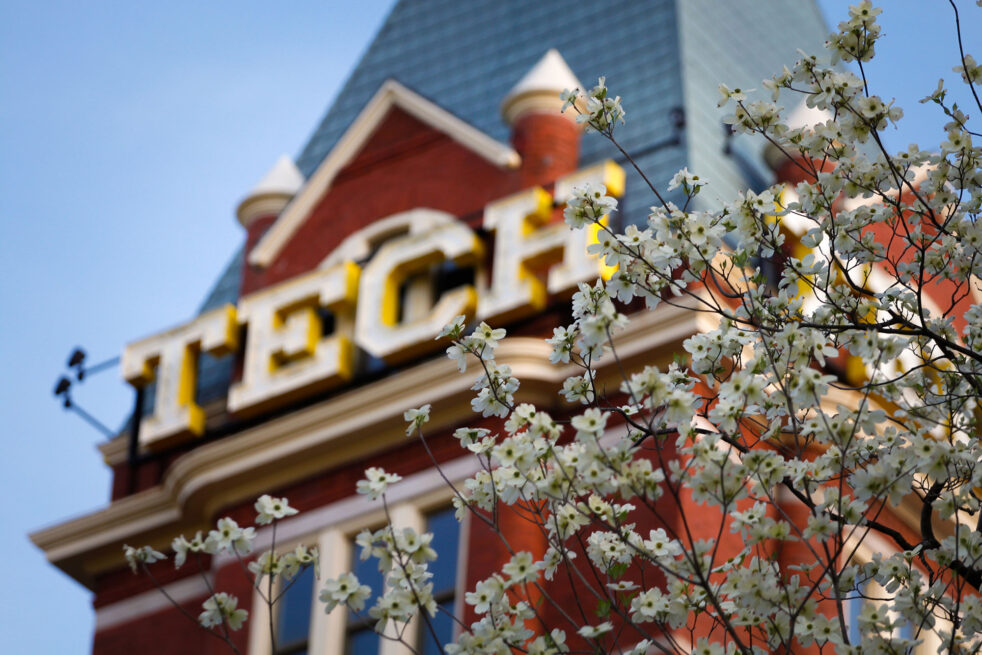Policies in a changing free speech landscape
The Tech community often feels the effect of changes in the federal government, as the recipient of over $100 million of federal funding per month. Even this week, the government shutdown forced the Institute to limit hiring new personnel, consulting services and major contracts and purchases, reminding us that federal policy shapes our campus in material ways. However, the reach of the federal government goes beyond funding; it also influences the limits of free speech.
Earlier this month, the Technique editorial board discussed growing barriers to free speech at the federal level, particularly regarding the growing regulatory role of the Federal Communications Commission. To understand how free speech changes affect Tech, The Technique spoke with Dr. LuoLuo Hong, the Vice President of Student Engagement and Well-Being, about freedom of expression at the Institute.
Despite challenges to free expression at the federal level, Tech remains strong in its commitment to protecting First Amendment rights.
One of the common quantifiers for free speech on university campuses is the Foundation for Individual Rights and Expression (FIRE) ratings. FIRE assesses campus free speech annually by surveying students on their experience in several free speech categories, analyzing each school’s policies on student expression and inspecting how schools respond to controversies. This year, Tech ranked 29 out of 257, dropping from fifth place last year.
The rankings alone cannot encompass the state of freedom of expression on campus, with FIRE having surveyed less than one percent of Tech students. Even so, its system rewards accessible information regarding free speech on campuses and provides guidance on policies that support expression, like institute neutrality, by which universities do not take political stances.
Tech adheres to the University System of Georgia’s policy requiring institute neutrality, which ensures all students feel safe and supported in their education and in their freedom of expression. Notably, the Institute opened campus to both Democratic and Republican political candidates before the 2024 election; this impartiality cues to students that Tech is a space for everyone.
However, when politics and student well-being become intertwined, institute neutrality becomes more difficult.
Two years ago, before adopting institutional neutrality, President Ángel Cabrera shared a letter expressing his sympathy with those afflicted by the Oct. 7th attacks in Israel. Dr. Hong said in our conversation if the same statement were made today, it could be reconsidered under the Institute’s current neutrality policy.
This has already made an impact, when in February, Tech restructured student resource centers following a “Dear Colleague Letter” from the Department of Education’s Office of Civil Rights. The letter outlined policies around DEI initiatives in schools that receive federal funding, but despite the clear intersection of student life and legislation, the Institute focused on what changes students could anticipate rather than commenting on the policy change.
Just as we seek to represent Tech in the professional world, we want Tech to represent us in the academic world; it makes sense that we would want to know what Tech values. While upholding neutrality requires students to find other avenues for solidarity, it is a worthy exchange to protect all students’ speech. But, should state or federal laws interfere with Tech’s educational mission, the Institute must defend the rights of its students.
A 2022 state law designated all unrestricted outdoor areas of state campuses as free speech zones. As a result, Tech cannot deny protest in dedicated areas of campus, so long as the group adheres to time, place and manner restrictions. Such restrictions include limiting protest during finals, quelling noise level or regulating the size of posters.
However, Tech takes measures beyond state requirements to actively protect free campus speech. Staff and faculty can join the volunteer observer program, which allows them to train to be multi-partial witnesses to expressive activities, and act as eyewitnesses or mitigate possible conflict.
While students may disagree with protesters’ messages or find protests inconvenient, feeling unsafe or being unable to freely express oneself is a far greater inconvenience.
Tech must continue to support free speech, not just with policy and didactics, but financially. Tech must continue to fund Registered Student Organizations that serve as student platforms for speech.
However, there are limitations to Tech’s ability to regulate speech. This is particularly true online where people can make inflammatory comments anonymously. For cases where Tech cannot protect us, they provide students the tools to use free speech effectively and respectfully through a civil discourse training course mandatory for students matriculating in Fall 2025 onward.
Though these differences in language and context may seem insignificant, the conscious demarcation of spaces and roles protects us and our rights, especially in spaces outside of Tech’s jurisdiction.
Tech’s policy of institute neutrality, free speech zones and mandatory civil discourse training provides a strong foundation for free speech protection on campus. However, Tech can only do so much alone. Tech students must do what they do best and lead by example — not just in engineering or value rankings, but in creating the space to uplift voices and new ideas that allow for innovation and growth.
